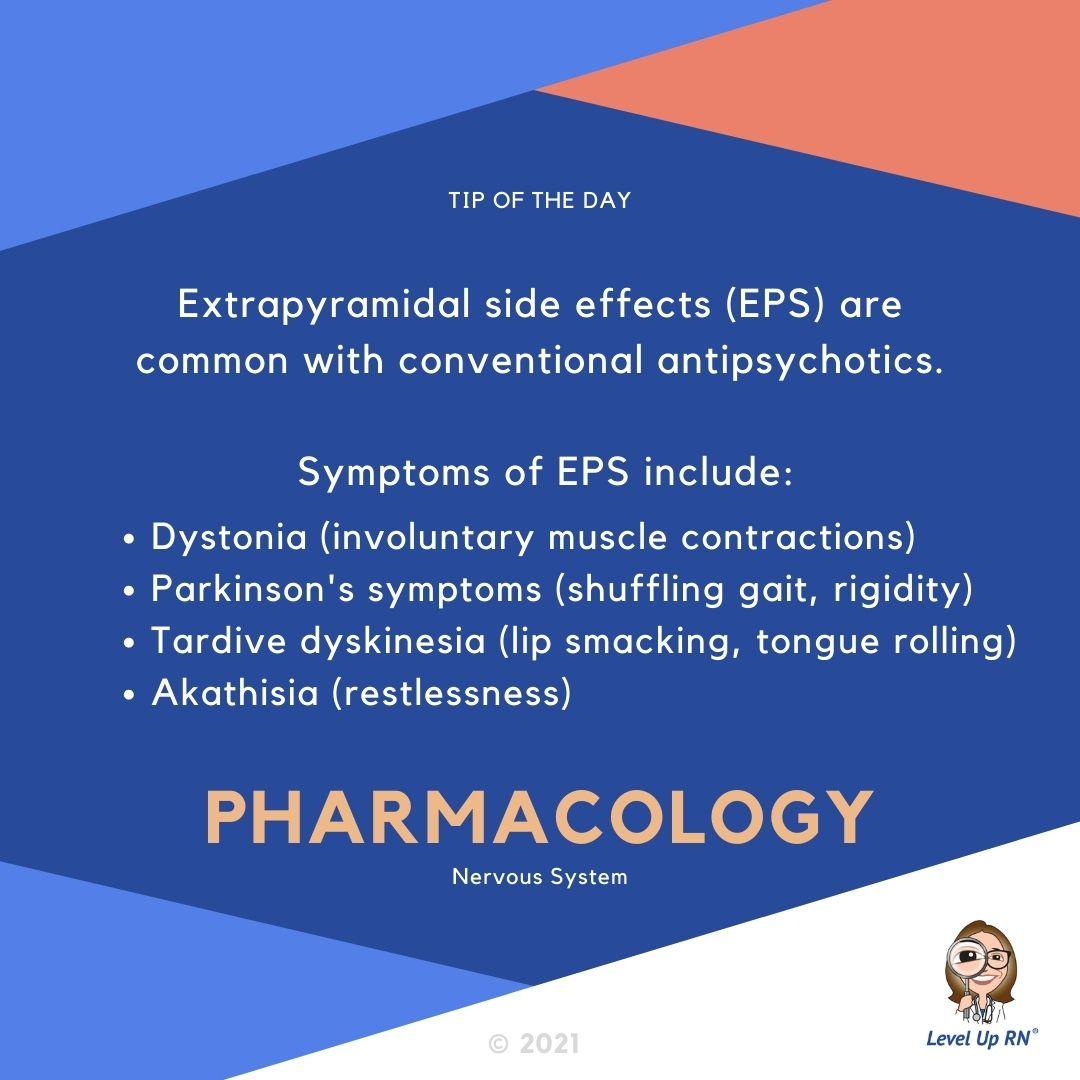What are extrapyramidal side effects?
Extrapyramidal side effects, also called drug-induced movement disorders, describe the side effects caused by certain antipsychotic and other drugs. Common extrapyramidal side effects include:
Akathisia: Akathisia is a movement disorder characterized by a subjective feeling of inner restlessness accompanied by mental distress and an inability to sit still.
Dystonia: Dystonia is a movement disorder in which a person's muscles contract uncontrollably. The contraction causes the affected body part to twist involuntarily, resulting in repetitive movements or abnormal postures. Dystonia can affect one muscle, a muscle group, or the entire body.
Parkinson's symptoms: Parkinson’s symptoms can include tremor (trembling) in the hands, legs, arms, jaw or head. They can also include slowness of movement, stiffness of the limbs and trunk, and impaired balance and coordination.
Tardive dyskinesia: Tardive dyskinesia (TD) is a disorder that results in involuntary, repetitive body movements, which may include grimacing, sticking out the tongue, or smacking the lips.
What are Antipsychotics medications used for?
Antipsychotic medications can reduce or relieve symptoms of psychosis such as delusions and hallucinations. They are the main class of drugs used to treat people with schizophrenia and are also used to treat people with psychosis that occurs in bipolar disorder.
To learn more about these types of medications, check out our Pharmacology Flashcards for nursing students.
What is the extrapyramidal system?
The extrapyramidal system is a neural network in your brain that helps regulate motor control and coordination. It includes the basal ganglia, which is a group of structures that make up one of the components in the neural chain that controls the voluntary motor activity.
Treatments for extrapyramidal symptoms
Treatment for extrapyramidal symptoms can be difficult. Usually the only method of treatment is to try different drugs or lower the dosage of the medication that is causing the symptoms. Depending on your symptoms your healthcare provider may prescribe another drug along with the antipsychotics to help treat them, such as benztropine, an anticholinergic agent.



